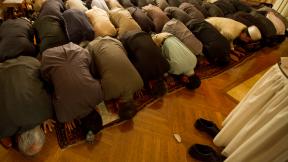
How to have good breath in Ramadan? Your brain is who you are. A constellation of past experiences, hopes, dreams, and knowledge, receiving input from the outside world through your senses, and simultaneously changing that very world through your interactions. It is thus shaped by, but yet shapes the world around it. It is constantly changing with every second, as every experience you have alters its physical and chemical structure. It is as mysterious to the neuroscientist as to average individual. Scientists refer to it as the most complex thing in the universe, thus currently defying definition, and a scientific language to describe what it does.
That being said, we do however know a few things about its physical attributes. It is jam-packed, containing about 70 billion neurons and over 200 trillion connections between them. It is the most metabolically active (requiring the most energy per unit weight) organ in the body. Thus, while weighing little over 1300 grams – just a fraction of the weight of the human body - it gets 20 to 30 percent of the heart’s output every second.
How to have good breath in Ramadan? It sits within the protective confines of your skull, and is bathed in a fluid that reduces its effective weight to about 50 grams. This further protects it from rapid movements which would otherwise tear it or bruise it. It is mostly fat and water, and its language is electricity, sending information to and fro through small packets of electrical charges.
Amongst other nutrients, the brain needs glucose to function – yup, good old-fashioned sugar. It loves it, and it is no wonder we love to eat it. However, during prolonged starvation, and likely during some of the longer fasts this Ramadan, it can switch its metabolism to use the byproduct of fat breakdown called ketone bodies. In fact, for those of you who are physically active during Ramadan, you will likely be able to smell the ketones on your breath – it smells kind of like acetone.
Ketones are produced by the liver when it runs out of glycogen - a type of storage form of sugar. So once the glycogen disappears, fat starts to be broken down and you get ketone bodies. Remarkably, the brain can completely switch from using glucose to using ketones after about three days of absolutely no glucose intake.
The fact that we replenish our glycogen every day during Ramadan (Suhoor and Iftar), is likely why our brains don’t fully switch to using ketone bodies, and hence why we might, in the middle of the day, find it a bit hard to concentrate. Although interestingly, as you might notice with the longer fasts this year, that is just a transient effect, likely because your brain starts to use the small amount of ketone bodies in your blood.
Ketone bodies have been shown to be of some benefit in two neurological disorders: epilepsy and Alzheimer’s disease. The so-called “ketogenic diet”, which is used in children, is a diet devoid of sugar and high in fat that forces the person to use ketone bodies as their primary energy source. It was proposed that the ketones might reduce the number of seizures by various mechanisms that I will not go into right now. Interestingly, in some of the studies, although the children’s seizures did not improve, their mental functioning did. It was suggested from these studies that the ketones provided increased energy supply to the brain thus improving its functioning.
Similarly, it has been shown that very early on in Alzheimer’s disease, the brain is unable to use glucose appropriately. However, giving ketones to these patients was shown to improve their memory particularly early on in their disease course. This is not to say that fasting might be a potential treatment for people with epilepsy or Alzheimer’s, but it is interesting to speculate about the potential “brain benefits” of fasting for those who do not have neurological disorders. One never knows!
The Quran is a guide for the human race, a guide that prescribes behaviors that, when followed, will benefit the individual and society as a whole. It is thus a manual for our brain. The manual prescribes fasting as way to increase our Taqwa (consciousness of Allah):
“Oh you who have attained to faith! Fasting is ordained for you as it was ordained for those before you, so that you might remain conscious of God: …” (Quran 2:183).
This simple command presents the ideal behavior modification paradigm, and the behavioral modification results in habit formation over an approximately 30-day course. The psychology of habits will not be reviewed here exhaustively, but amongst the benefits of habits is that they are mentally efficient. This means that one can do other things in parallel while performing the habit. I will argue that Ramadan presents the ideal “do-it-yourself habit guide” or “template” which we can use to effect change in all facets our lives, albeit with the help of Allah, as the Quran tells us:
“Verily, God does not change people's condition unless they change their inner selves;…” (Quran 13:11).
From the verse above, the first step however is ours. So, why is Ramadan the ideal template and training for the rest of our habit forming lives? From the literature on psychology, the key step to establishing a new habit is to create an implementation intention. I put in bold implementation intention since it is a key term - psychology jargon so to speak. So as you all know, you get up for Fajr, and explicitly state you are making your intention to Allah that you will fast. This is the implementation intention clear and simple, and who of all entities to make the intention to but Allah? It is kind of hard to break that intention - right? Right! So immediately Allah is helping us to help ourselves.
Other key elements to establishing a habit is that they have specific cues that link the habit to a specific response or responses. So for example, sunrise is a time cue that is linked to awakening, praying, and making your intention to fast. Sunset is a time cue to breaking one’s fast. In between, there are specific responses to the intention you made, no eating, drinking, or sex.
Concurrently, one is to be constantly mindful of one’s behavior, to be patient despite possibly being a bit cranky (one might be mentally fatigued as your brain may be a bit low on glucose - this is not an excuse, as you have to behave properly regardless), and to remain conscious of Allah. For those of you who have fasted during the long summer fasts, you know that when your mouth is super dry and you see a water fountain, it is impossible not to think of Allah!
So plain and simple, Ramadan is a template that all Muslim’s have the privilege to partake in early in their life, learn from, and then apply to other aspects of their behavior they wish to change. It is but one of the myriad of prescriptions in the Quran to train our brain and establish good habits.
Through the establishment of good habits (please see the Quran for an exhaustive list of good habits to implement), we increase our mental efficiency, ruminate less in uncertainty, and can thus spend more time applying ourselves to aiding those around us. So when you think of it, Ramadan is like a really healthy meal for your brain. A meal that contains all those yummy ketone bodies, habit forming skills, and opportunities to remember Allah. Insha Allah enjoy it, and all its benefits!
Dr. Taufik A. Valiante is a neurosurgeon at the Toronto Western Hospital. He is Associate Professor of Neurosurgery at the Institute of Biomaterials and Biomedical Engineering. He is the Director of the Surgical Epilepsy Program, and a neuroscientist studying brain function. You can follow him on Twitter (@DrValiante) for neuroscience related information.








Comments
@Mubashar: You apparently
@Mubashar: You apparently have never been on a even a variation of the ketogenic diet or a low carb diet for that matter.
A large number of people follow the basic principles of keto diet especially in the western world and there is really nothing "difficult" about it. Your quotes about hardship and difficulty are irrelevant here and the authors main purpose here is to show how Allah has ordained something so beneficial for us that jahils like yoruself dont deserve.
Location
Ramadan: A Meal for Your Brain
Its appalling to see a physician use such loose inferences " to speculate about the potential “brain benefits” of fasting for those who do not have neurological disorders". Common sense tells us that a fasting brain and a well nourished brain cannot compete in function. Look around you, which fasting person have you seen demonstrate increased mental ability? If that were remotely the case we would have all fasted or as you have suggested been on a ketogenic diet while working, study or more importantly while writing exams. Please note the follow: Surah 2, Ayaah 185 ..." God desires for you ease, and He does not desire hardship for you." If that is the case, then clearly fasting cannot mean to stay away from food and drink. As you noted, fasting especially this ramadan isn't easy.
The purpose of "Saum", poorly translated to meaning fasting, is indeed a means to attain Taqwa. But by no means is Taqwa "consciousness of Allah." This understanding has let generations of people to starve themselves of food or drink year after year and have nothing, absolutely nothing to show for it. If someone did a task for a month every year for 50 years they should have something to show for it. What do you have to show thats tangible for your fasting year after year? Rather Tawqa is = Seeking to journey through life in security = Protect oneself from disintegration of the
personality = Journeying in security = Being careful = Getting empowered against evil = Avoid
overstepping the laws = Exercising caution = Preserving the ‘self’ against deterioration = Good
conduct = Building character = Live a life upright = Fear the consequences of violating Divine
Commands = Observing = Being mindful of the Creator = Remaining conscious of the Divinely
ordained Values = Taking precaution = Being watchful against error.
No amount of fasting from food and drink can ever bring about that above!
Location
Add new comment